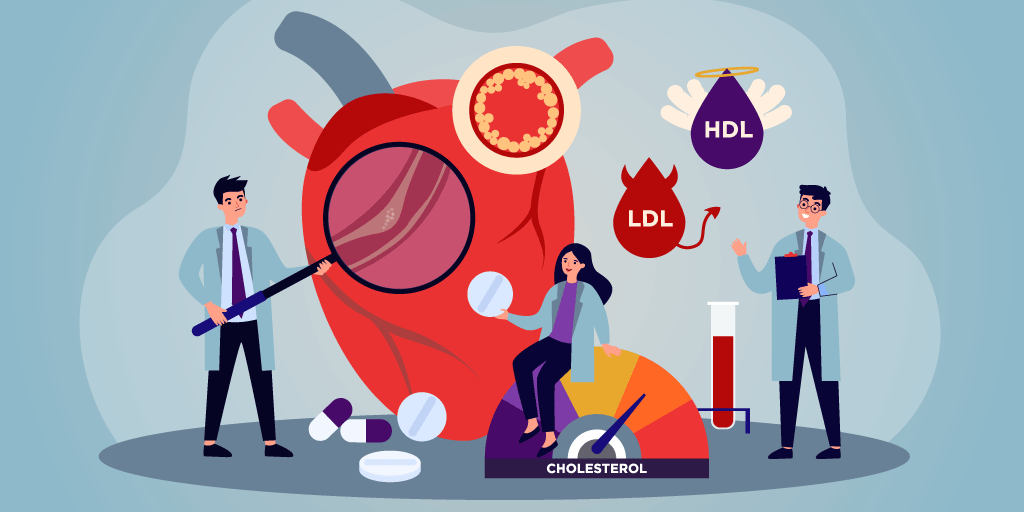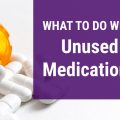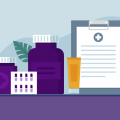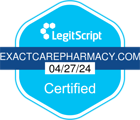
Statins: Medication for Heart Protection
Paying attention to your heart health is important because heart disease is one of the most common ailments affecting people today. According to the Centers for Disease Control and Prevention (CDC), it is the leading cause of death for both men and women in America.1 You may be at risk for heart problems and not have any symptoms. That’s why it’s recommended you work with your doctor to proactively monitor your heart health. This includes having your LDL and HDL cholesterol levels checked. If you have a high level of LDL cholesterol in your blood, you may be more at risk for heart disease.
Why is LDL considered “bad” cholesterol?
LDL cholesterol is considered the bad kind because it can build up in the walls of your blood vessels. That buildup can collect with other substances in your blood to form plaque. As your arteries harden with plaque, they become more narrow and restrict the blood flow to your heart. Heart attacks and strokes are more likely to occur when an artery is partially or totally blocked by a plaque deposit.
What is the treatment for high cholesterol?
If your cholesterol levels are high enough to cause health problems, your doctor may prescribe a statin. Statins are a type of medication, and they can be highly effective in protecting the heart. Statins work by blocking the enzyme in your body that produces cholesterol. This keeps the buildup of cholesterol and plaque in your arteries from getting thicker and helps prevent blockage. Statins are among the most widely prescribed medication in the world. Some of the most common statins are:
- Atorvastatin (Lipitor)
- Lovastatin (Altoprev)
- Pitavastatin (Livalo, Zypitamag)
- Pravastatin (Pravachol)
- Rosuvastatin (Crestor, Ezallor)
- Simvastatin (Zocor)
In addition to treating high cholesterol, statins are also helpful in reducing the risk of heart attack and stroke. You may be prescribed a statin if you have previously had a heart attack, stroke, bypass surgery or stents.
What Should I Keep in Mind if I Take Statins?
Your doctor and/or pharmacist should provide you with guidance for taking statins. This includes going over any side effects you may experience. There are some medications that you should not take with statins. Let your pharmacist know about all of the medications you currently take so they can look for possible drug interactions.
Depending on the statin you are prescribed, you may be told to avoid drinking grapefruit juice. If this is something you enjoy, you’ll want to talk to your doctor or pharmacist about the risks involved.
As with any medication you are prescribed, don’t stop taking your medication unless your doctor instructs you to do so. Because there are no symptoms associated with high cholesterol, the effects of your medication may not be obvious to you. That doesn’t mean your medication is not working. Taking yourself off of your medication could put your health in danger. If you are having trouble taking your medication or start to experience unpleasant side effects, talk to your doctor or pharmacist. They can help you find a solution.
What Else Can I Do to Help Lower My Cholesterol?
In addition to taking a statin, certain lifestyle changes can also help you manage your cholesterol and improve your heart health. Your doctor may recommend the following lifestyle changes:
- Include more fresh fruits and vegetables in your diet
- Reduce the amount of saturated fat you eat and avoid trans fat completely. Examples of foods to limit are butter, whole milk dairy products, and red meat.
- Get regular exercise
- Quit smoking
- Limit alcohol
- Keep your weight in a healthy range
Always talk to your doctor before starting an exercise program or changing your diet. They can help you find what will work for you while keeping you safe.
Have Questions About Statins?
If you are an ExactCare patient on statins, we can answer any questions you might have. Call us at 1-877-355-7225. Our business hours are Monday – Friday, 9 a.m. to 6:30 p.m. Eastern.







